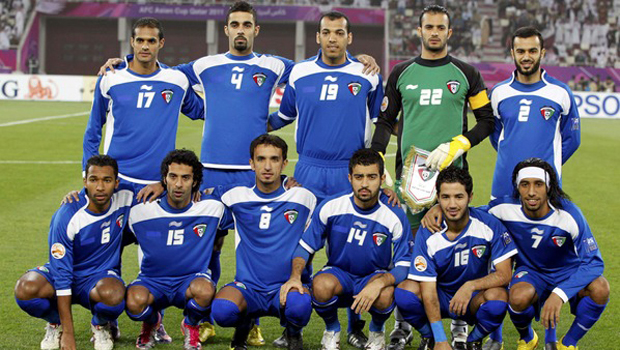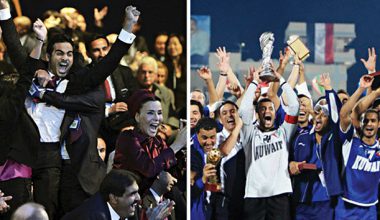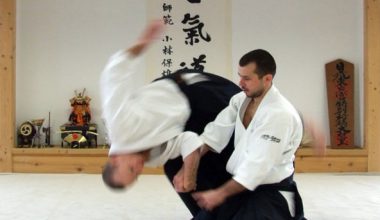
After a tremendous title win at the Gulf Cup, what went wrong?
Football is a beautiful game, full of drama, suspense and heart-breaking scenes. There are those deserving and decisive aspects as well as those controversial moments where humans are bound to make mistakes. However, life moves on and with it comes a new beginning and other crucial competitions. One match can affect the progress a team makes in the competition, but it also serves as a warning for future amends, whether it was the refereeing or a tactical interference.
What happened in the first group match between Kuwait and China was nothing if not cruel to the players in Blue, and it could have or probably did lower the overall team morale, but we will leave that discussion for another day as we are here to look at the physical and intellectual nature of the players and Kuwait coach Goran Tufegdzic. Young and ambitious Goran proved he had what it takes to win the Gulf Cup with a new crop of young players but was it really him that inspired the players to win the games?
Coming off so many years of disappointment, the Kuwaitis needed a consolation prize to let their fans believe in them again, and what better way than to win the Gulf Cup against their regional rivals? The Kuwaiti national team made up of mostly youngsters in their early 20’s, excluding a couple of experienced players like Nawaf Al Khaldi and Musaed Neda, proved to be a surprise package in the Gulf Cup with their fast pace and dribbling skills that spelled nightmares for the fullbacks of the opposing teams.
With Bader Al Mutawa playing as an attacking midfielder/playmaker Kuwait had loads of talent in the final third, especially with a midfield anchored by two capable defensive midfielders, in which Jarah Al Ateeqi distributed long passes while his fellow team-mate Talal Al Amer did the dirty defensive work. With ample squad depth from goalkeeper Khalid Al Rasheedi to winger Khaled Khalaf, Kuwait were also tagged as one of the dark horses of the Asian Cup 2011 edition. So what went wrong?
The simplest of solutions which could be seen by the naked eye was that Kuwait lacked a front man with killer finishing skills. Yousef Nasser, for all his physical attributes and tender age, is still an unfinished article. While he is exceptional in the air, he is not much of a finisher as was apparent in both competitions with only one meager goal – which was also a deflection – in the eight matches he played. He also doesn’t have the greatest of ratios for a box to box striker.
The gulf in class between the two teams was evident in the match between Uzbekistan and Kuwait, where the latter dominated the match in its entirety with one goal coming from a penalty while Uzbekistan scored two goals from a few shots on target. Goran also had the honor of playing an unusual formation in the back due to Musaed Neda’s suspension.
Instead of playing either Yaqoub Al Taher or Al Arabi’s Ahmad Al Rasheedi alongside Hussain Al Fathel in the heart of defense, and deploying Amer Al Matouq in his usual right back position with Fahad Awath occupying the left back position, he messed things up by playing Amer Al Matouq in central defense, a position that he never played for in the national team or local club Al Qadsiya. To note, he also played a similar formation against China in the first match, as to where he baffles yours truly by not utilizing his player’s natural positions.
Furthermore, Goran must realize that his team concedes a lot of goals through long balls, free kick situations and aerial headers, and to blame it on the height of his players is no excuse as some of the world’s best defenders are of average height. Goran needs to address his goalkeepers and defenders to be wary of long balls and free kicks, and to increase the responsiveness of reading the game especially for defending in these kinds of situations.
Be it the hangover of winning the Gulf Cup, or being overconfident against tougher opposition, or the fact that the first game with the refereeing mistakes defused the high morale; Kuwait still has a long way to go to becoming a regional power in Asia again. To reach the heights of Japan, South Korea and Australia who amazed us on the route to the semifinals, the Kuwaiti federation must start sooner than later with one notion: professionalism.
– Hamad Bahrouh







